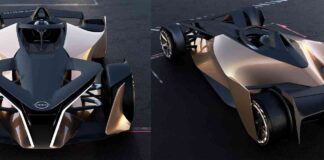Lexus is reportedly planning to phase out its performance-focused “F” badge on dedicated models, signaling a significant shift in its approach to performance. According to statements from the luxury division’s leadership, future performance elements may be integrated into existing electric and hybrid vehicles rather than appearing on standalone models with separate badges.
This potential change marks a notable departure from Lexus’ traditional approach to performance vehicles. Models like the RC F and LFA represented the brand’s commitment to high-performance engineering, offering drivers experiences typically associated with competitors like BMW M and Mercedes-AMG. For enthusiasts who appreciated these models’ unique character and driving dynamics, this news represents a significant change in Lexus’ product strategy.
However, Lexus officials suggest this transition reflects broader industry trends toward software-defined vehicles. At the recent Japan Mobility Show, concepts featuring performance modes accessible through software interfaces provided a preview of this potential direction. The steering wheel of one concept vehicle even featured an “F” button, suggesting that performance identity may evolve rather than disappear.
“We’re moving from hardware-focused performance to a more integrated approach,” explained Takashi Watanabe, Lexus President. “The fun-to-drive aspect remains important, but we’re exploring new ways to deliver performance value through technology.”
The strategic pivot toward software-defined vehicles represents more than just a badge change. It reflects the industry-wide transition toward electrification and digitalization. Performance may no longer be defined by physical components like suspension hardware or engine tuning, but by sophisticated software algorithms that can adjust vehicle behavior in real-time.
Watanabe emphasized that this doesn’t necessarily mean the end of high-performance Lexus vehicles, but rather a redefinition of what constitutes performance in the modern automotive landscape. While the standalone F models may be on the way out, the brand’s commitment to delivering exceptional driving dynamics continues.
The transition appears gradual, with Watanabe noting, “We’re not going to be constrained by the ‘F’ identity. We want to provide value in whatever form it takes.” This suggests that while the dedicated F models may disappear, performance elements will likely persist in new forms across the Lexus lineup.
As the automotive industry embraces software-defined architectures, Lexus’ approach represents a potential preview of how luxury performance may evolve in the coming years. The question isn’t whether performance will remain part of Lexus DNA, but how it will manifest in vehicles of the future






















